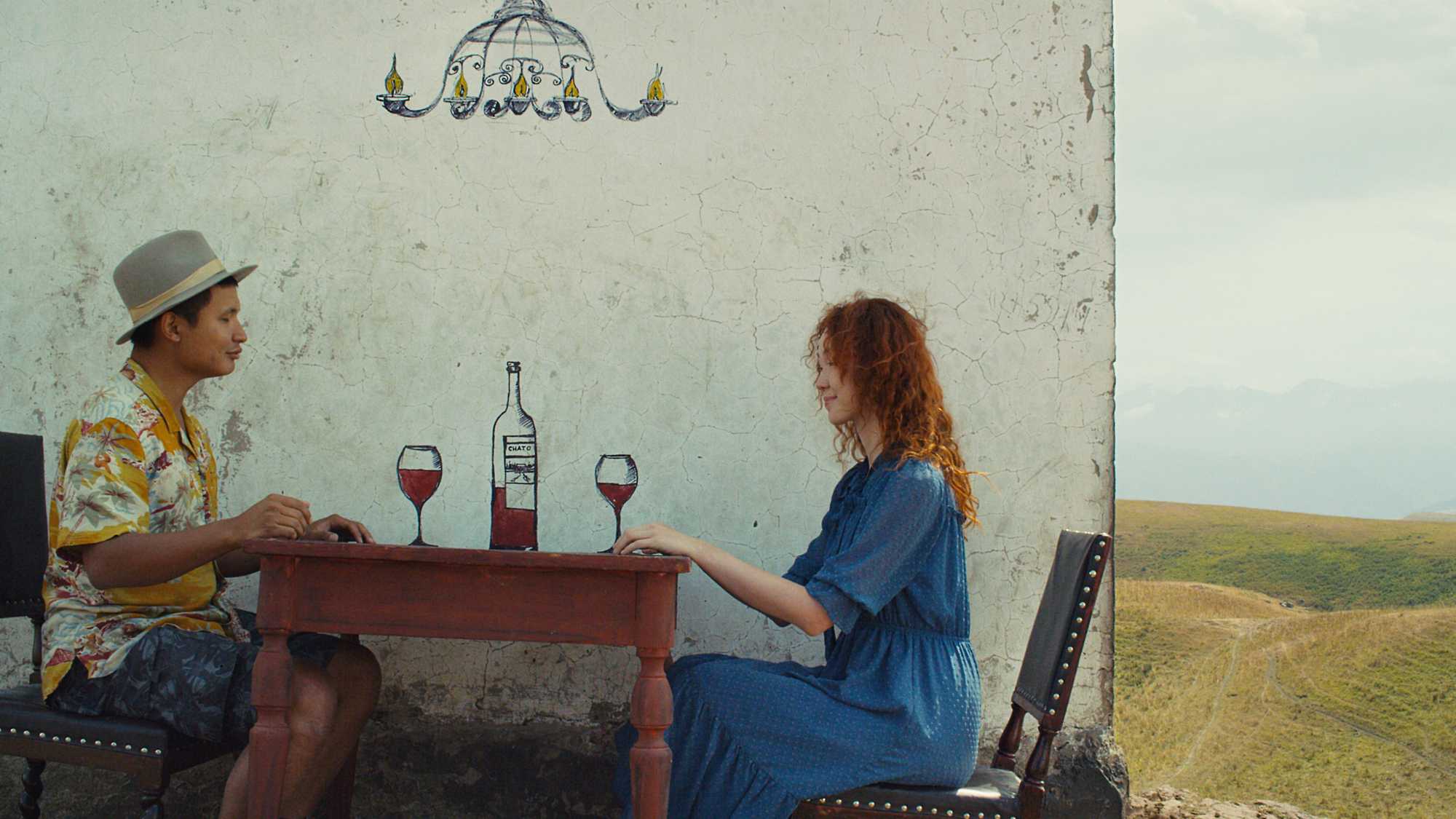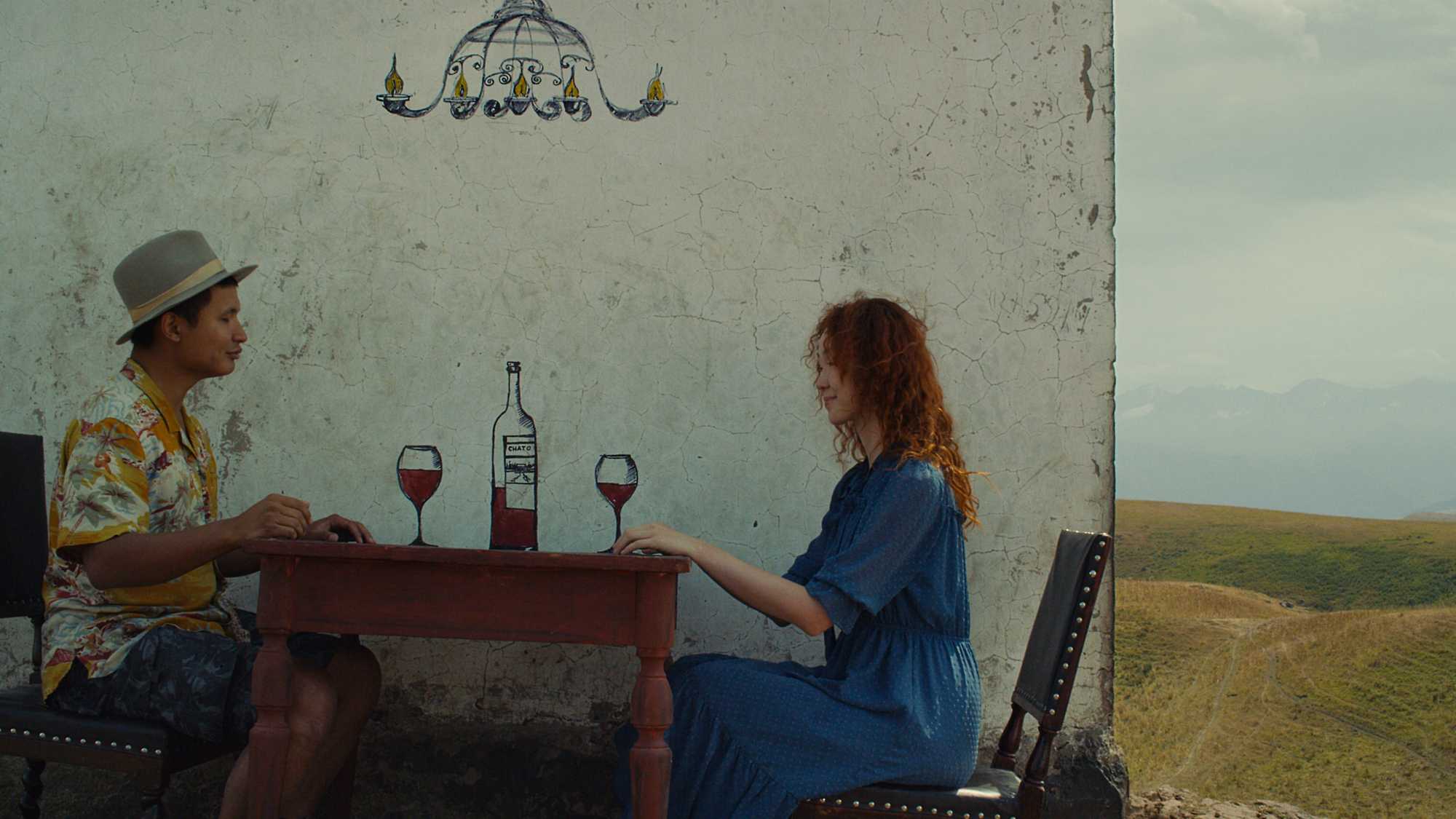An absurdist chase across rural Kazakhstan, this offbeat gangster comedy follows a movie-obsessed ex-con with mobsters on his tail and a girl on his arm as he strives to realise his dream: building a cinema in the mountains.


[A] delightful riff on an age-old story: lovable misfits pursuing untenable dreams in a world hardwired against dreamers.
Screened as part of NZIFF 2021
Yellow Cat 2020
Sary mysyq
Kermek (Azamat Nigmanov) is a cinema-obsessed ex-con convinced he looks like Alain Delon, who plans to steal money and build his village’s first ever movie theatre on his inherited land in the mountains. However, when Kermek steals from the wrong guys, he and his girlfriend –a hooker with a heart of gold and a working knowledge of cinema –become outlaws, careening across the Kazakhstan grasslands as they flee gangsters and corrupt cops.
It’s a film that wears its references on its sleeve, not only in the characters’ impressions of Alain Delon in Le Samourai, Gene Kelly in Singin’ in the Rain, and Robert De Niro in both Casino and Taxi Driver, but in its soundtrack and visuals, too. Like Quentin Tarantino’s True Romance, Yellow Cat directly references Carl Orff’s soundtrack to Terrence Malick’s 1973 classic Badlands and the film’s blocking, absurdist violence and deadpan humour at times seem to call on the Coen Brothers.
Yet it is cinematographer Yerkinbek Ptyraliyev’s expert eye for stunning compositions and writer/director Adilkhan Yerzhanov’s charming, enthusiastic misfits that elevate what could have been straight mimicry into something entirely singular. — Amanda Jane Robinson
“[At] its best, Yellow Cat’s dreaminess and escapism, distilled in the film’s awkward hero and its vibrant colour palette, are a rebuke to the grinding greyness of life in a repressive, patriarchal society.” — Lee Marshall, Screendaily